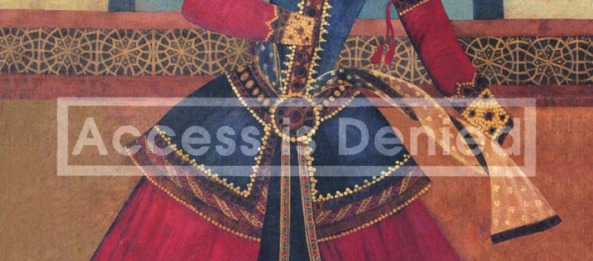Garnet Publishing has recently acquired the world rights to the novel The Knot in the Rug by the prominent Iranian journalist and novelist, Masoud Behnoud.
The Knot in the Rug (Khanoum), by Masoud Behnoud, encapsulates the massive upheavals of the first half of 20th century from a point of view that the English-speaking readership rarely glimpses. The story contains a rich and compelling record of how these historic events affected lives of a group of people from different parts of the world. It presents an overview of the fabric of the Iranian society with an emphasis on the last century’s privileged class.
In Khanoum, Behnoud takes us on a journey through turn of the 19th century Iran and follows the lives of three women. His heroine is Khanoum, a little girl born in the courts of Persia’s Qajar dynasty. At the same time, he unfolds the world events contemporaneous with two Persian dynasties up to the present day.
The dynasty, into which Khanoum was born, the Qajars, rose up during the tribal wars of eighteenth-century Iran to capture the Peacock Throne in 1785. Their rule lasted until 1925 when Reza Khan, a Cossack officer and British protégé became Prime Minister in 1921 and later established himself on the throne. The dynasty, which took the ancient Persian name of Pahlavi, lasted until the revolution of 1979. That year the Shii clergy, whom both the Qajars and the Pahlavis had done so much to foster and promote, declared the ancient institution of Persian monarchy to be a relic of the past.
Masoud Behnoud
(مسعود بهنود in Persian) a prominent Iranian journalist, historian and writer, was born on July 27, 1947 in Tehran. He started his work as a journalist in 1964. During his long career he worked as an investigating journalist for different newspapers. He founded more than 20 newspapers and magazines, none of them are currently in publication. Masoud Behnoud lives in the United Kingdom working as a freelance journalist for a number of media organisations, mainly BBC Persian Service, for which he has worked for the past fourteen years.
Behnoud started his career as a journalist in 1964 and became one of the most important and active figures in the trade union of the Iranian journalists. During his career Behnoud produced and presented programmes for the National Iranian Radio and Television, and he founded a number of newspapers and magazines many of which were banned with the advent of 1979 Islamic revolution of Iran, with the editor and senior members of staff being arrested. An attempt to publish other newspapers later on was met with public interest though they were all closed.
From 1979 till 1985, after the closure of the trade union of Iranian journalists Massoud Behnoud didn’t have any possibilities to continue his work. From 1981-1985 he led a low profile existence (more or less in hiding) in Teheran. In 1985 he was one of the founders of Adineh, the most prominent and influential social and literary monthly in Iran. For more than 13 years Massoud Behnoud was one of the leading members of the editorial board and published a great number of essays and commentaries in Adineh. In his articles he supported the freedom of speech and of the press. He struggled against censorship and tried to support the free circulation of information.
Once in 1995 the trade union of Armenian writers invited 22 Iranian writers and journalist for a visit to Armenistan. Massoud Behnoud was one of these delegates. In a conspiracy to kill all of the delegates the Iranian security police tried to divert the bus they were travelling with on a steep valley. They only survived by chance.
In 1996 the chief editor of “Adineh”, Faraj Sarkohi, was arrested and in 1998 Adineh was closed on the order of the Islamic court. The imprisonment of Faraj Sarkohi aroused an International campaign from Reporter sans Frontieres, the International PEN-Center, amnesty international and other human right organizations as well as the European Union. In 1997 Massoud Behnoud joined a host of other journalists to publish the Teheran daily Jameh. His articles and commentaries were received with a great deal of public interest. With the closure of Jameh he continued his work in the other newly found dailies Tous, Neshat, Asr-e Azadegan and the most lately Bonyan. All of this newspapers have been closed down.
Following a series of murders in 1999 during which some prominent Iranian writers and intellectuals have been killed by the security police, Massoud Behnoud’s name was also discovered on the list of those writers and intellectuals who hade been earmarked for assassination
After the crackdown on Iranian newspapers, Massoud Behnoud was imprisoned for 23 months.was fined the equivalent of 15.000 USD. The court accused him of “having provoked public opinion, insulting the Supreme Leader of the Islamic Republic and the commander of the Revolutionary guards”.
Serving a period of six months, two of which he spent in solitary confinement, Massoud Behnoud was released on temporary bail of approximately US$40,000.
On 1 June 2002, while Behnoud was engaged in a European lecture tour, the Iranian judiciary announced that an order for his arrest had once again been issued. On base of this order he had to come back to Iran to serve the remainder of his 16 months term in prison, but he refused to go back.
